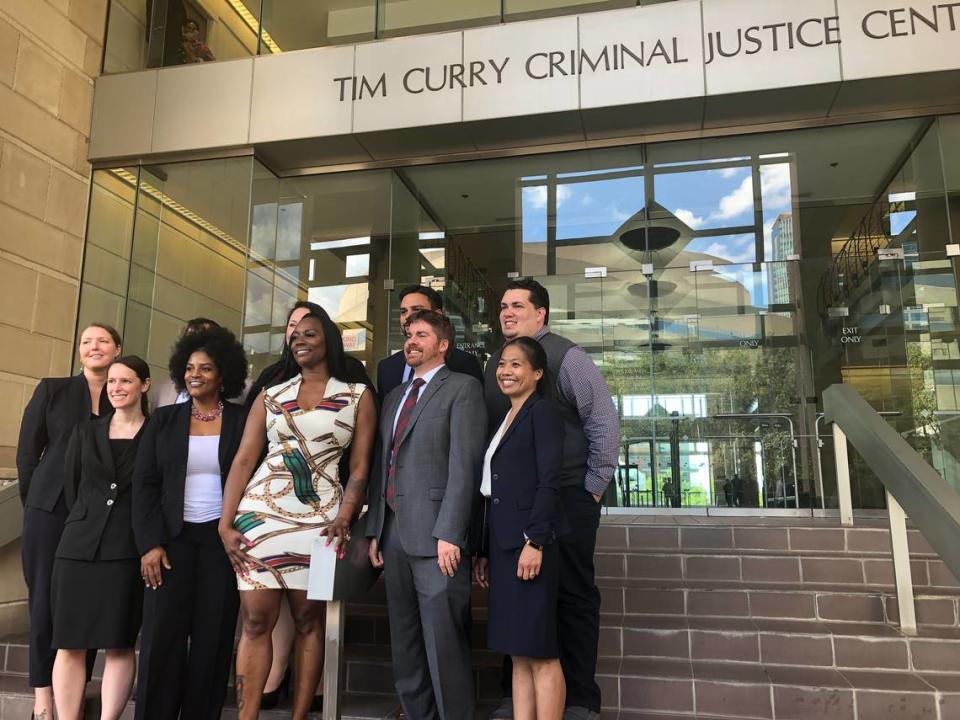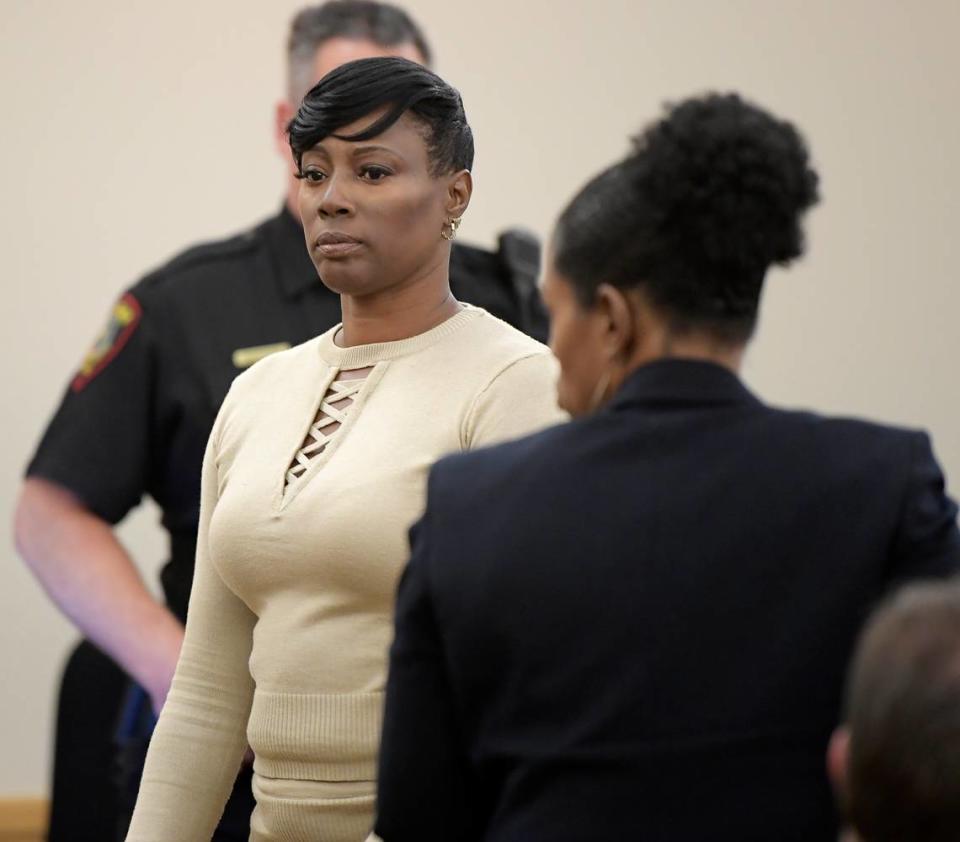Crystal Mason didn’t vote illegally, so why did it take so long to set her free? | Opinion
- Oops!Something went wrong.Please try again later.
Crystal Mason waited long enough.
It’s only fitting that her six-year court case was resolved the same week as Attorney General Ken Paxton’s long-running court saga. The Rendon resident’s 2018 conviction and prison sentence for illegal voting were reversed Thursday by the Fort Worth-based 2nd Court of Appeals.
“I am overjoyed to see my faith rewarded today,” Mason said in a statement issued by the American Civil Liberties Union, calling the case “a political ploy ... I’ve cried and prayed every night for over six years straight that I would remain a free Black woman.”
Mason’s conviction and five-year prison sentence for trying to vote — it didn’t even count — came when Tarrant County prosecutors and investigators from Paxton’s office were on a partisan political rampage to uphold “election integrity” by finding illegal voting in the 2016 election.
But Texas’ highest court, the state Court of Criminal Appeals, ruled Thursday that Mason did not vote illegally when she cast a provisional ballot, because she did not have “actual knowledge” that she could not vote while on federal supervised release in a tax fraud case.
At the time, then-District Attorney Sharen Wilson and Paxton’s investigators argued basically, “She should have known.”
But the court ruled in 2022 that it isn’t illegal voting unless the voter knows it’s illegal.
The vote itself was thrown out right away.
Yet Tarrant County still tried to send her to prison for five years.
Mason’s case became a national cause celebre, and Exhibit A for politicians claiming that the Tarrant County Republican Party and the Republican Party of Texas are trying to intimidate voters.
When Mason went to vote, she found out wasn’t on the list. An election worker actually coached her to cast a provisional vote.
When the Texas Legislature discussed the case in 2021, even Republican state Rep. Dustin Burrows of Lubbock said he would not have known that federal supervised release made a voter ineligible.
“That is a high bar to impute on somebody,” he said — “to put them away for five years.”
State Rep. John Bucy, D-Cedar Park, led the effort to revise the law.
“I’m relieved for Crystal,” he said Thursday.
“This has been a long and hard fight. But thankful that today she and her family received justice. No one should be threatened with jail time for an honest mistake.”

Mason was represented by the ACLU of Texas, the ACLU Voting Rights Project, and the Texas Civil Rights Project.
The 2nd Court of Appeals decision Thursday was delivered by Justice Wade Birdwell, a Republican.
In an earlier hearing, Birdwell had asked a prosecutor whether a provisional ballot says clearly that a voter is disqualified if he or she is on probation or federally supervised release.
The prosecutor was silent.
“I’ll help you out,” Birdwell said. “It doesn’t... There is nothing in this that tells her the consequence of her eligibility to vote.”
Back in 2016, Mason had been on federally supervised release in a tax fraud case where she also owed $4.2 million in restitution.

After she was convicted of illegal voting, her probation was revoked.
She went to prison for 10 months. She was released in July 2019 and awaited the outcome of state appeals.
In 2022, she said in a statement that her life “has been upended for what was, at worst, an innocent misunderstanding.”
A former U.S. Attorney, Sarah Saldaña, was among former state and federal prosecutors who had signed a brief urging the court to reverse the conviction.
“Ms. Mason’s penalty should have been not having her vote counted — which is what happened,” Saldaña said, calling the case “a misuse of prosecutorial power.”
District Attorney Phil Sorrells did not comment Thursday.
In a guest column in the Star-Telegram, Saldaña and former U.S. Attorney Matt Orwig singled out the inconsistent prosecution in Tarrant County.

Former Republican Justice of the Peace Russ Casey actually pleaded guilty to faking the signatures to get himself on the ballot. Yet he received probation.
Earlier last week, when Paxton escaped trial on a fraud charge by agreeing to pay his victims $270,000 — a year and a half’s salary for the Texas attorney general — I thought of Mason.
Paxton was eligible for a pretrial diversion agreement, we were told, because he is a nonviolent suspect.
So why not Mason?
Until Thursday, she was facing five years in prison for a vote that was never even counted.
She just didn’t look or vote like Ken Paxton.
(This column includes material from Star-Telegram archives.)

